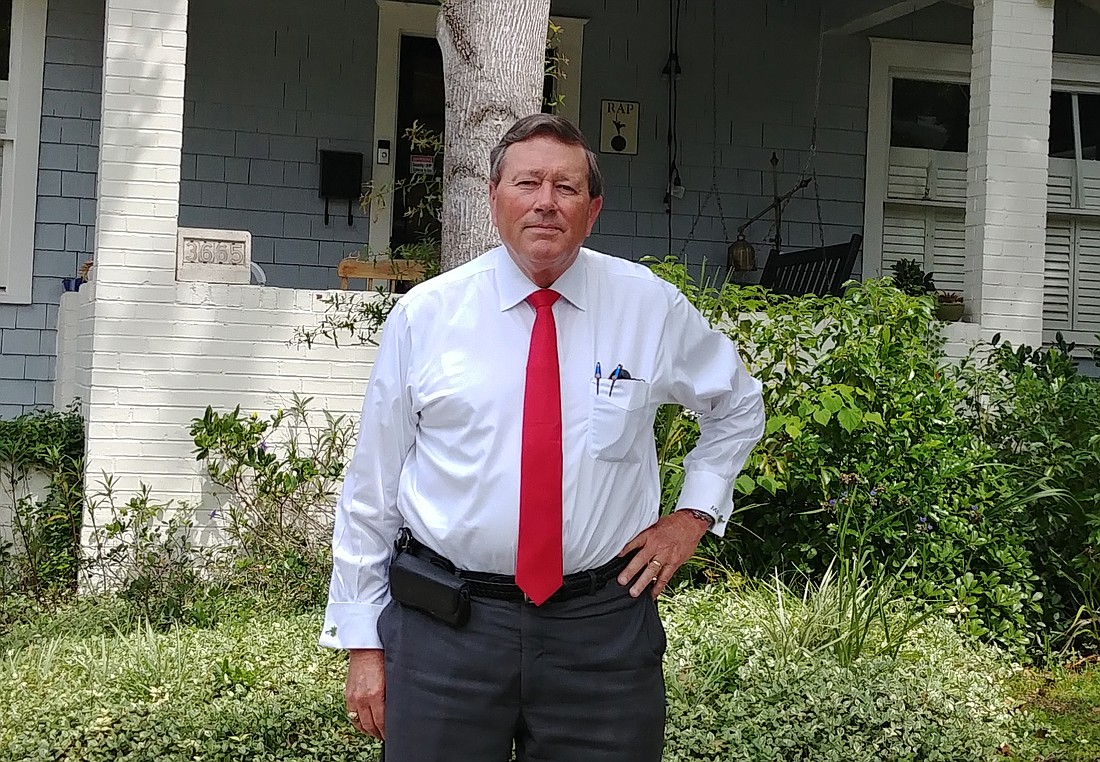
After the Florida Legislature declined to regulate short-term vacation rentals during several consecutive sessions, a City Council member is taking steps to tackle the issue.
The 2019 legislative session ended Friday.
District 14 council representative Jim Love sponsored Ordinance 2019-238, which was introduced to council April 9.
Love said it is an attempt to “regulate in a fashion that is fair to both sides and the guests” to protect residents and visitors and to lessen the burden on city services from the impact of short-term rentals.
He said his district, including historic Riverside and Avondale, has a large share of the city’s short-term rentals and decided to introduce his bill before his term ends June 30.
Love said 162 of the more than 1,000 short-term rentals listed on the Airbnb.com website in Jacksonville are in Riverside and Avondale.
Airbnb, an online marketplace, lets people rent their properties or spare rooms to guests. It says it provides access to more than 6 million places to stay in 191 countries.
Neighbors of short-term rentals have complained to Love about absentee owners.
“I have never had any issues with people who have a short-term rental and live there. Bed-and-breakfasts require the owner to live there,” he said.
Love said the bill is not asking for anything different than what a hotel or other business has to do — short-term rentals need to be registered, conform to codes and pay taxes.
“Registration allows us to see who is in charge. I am not going to burden the police to track down the owners,” Love said.
He said the bill would ensure “people would know the rules.”
The city will offer a free landlord training program that owners and agents will be required to complete.
If approved, the bill will create a registration system for a person or entity wanting to offer property for a short-term rental and provide regulations and enforcement by the city.
Registration will require a fee, along with proof of insurance, inspection by the city’s Fire Prevention Division and notification to the Duval County Property Appraiser.
In addition, the bill will require a Certificate of Use for operation and the short-term rental must comply with zoning, building, safety and fire codes.
Other requirements include:
• The property owner or agent must live in and occupy the property during the rental period for properties in districts zoned for residential use and districts that allow residential and planned unit developments that are predominately residential.
• The maximum number of bedrooms for rent is limited to three and they are limited to two adults per room.
• One off-street parking space per bedroom must be provided and all advertising must indicate the number of spaces allowed. Designated parking cannot be in right of ways, grass or landscaped areas.
• Use of an accessory structure, not legally built for residential use is prohibited, as is use of a recreational vehicle or nonpermanent housing.
• The short-term vacation rental cannot be used for commercial purposes or events such as weddings, meetings and parties.
• General liability insurance is required at a minimum of $1 million per occurrence for each property.
• Facility exteriors cannot be modified from the residential character by signage, lighting, color or materials.
• Operation of the short-term rental cannot create a nuisance to other properties.
• A contact person must be available 24 hours a day while in operation and must verify the number of renters and vehicles.
• The property owner is responsible for all taxes, fees and other charges connected with the operation.
Regulations of short-term rental uses will be enforced by cease-and-desist orders, abatement and removal of conditions in violation, civil penalties and other means authorized by law.
Love described the bill at a community meeting Monday night at Riverside Presbyterian Church on Park Street.
Those supporting the legislation talked about the need for control, transparency of ownership and operations and neighborhood safety.
Those opposing it object to the requirements to have the owner or agent live on the property, limiting the number of rooms to be rented and the provision of on-site parking.
Love said he would consider amending the legislation and also said operators could apply for a waiver or deviation to the legislation.
The Jacksonville zoning code does not specifically address short-term vacation rentals, however they are allowed in residential areas based on the Chapter 656, Part 16, Ordinance Code, definition of a “dwelling unit.”
That means “a room or rooms connected together constituting a residential use as a separate, independent housekeeping establishment for a family, and containing sleeping facilities and one kitchen.
“The dwelling unit may be for owner occupancy or for rental or lease on a weekly, monthly or longer basis.”
In 2011, the Florida Legislature prohibited local governments from regulating short-term vacation rentals, however, it grandfathered any ordinance by local governments regulating short-term rental prior to June 1, 2011.
In 2014, the legislature passed Senate Bill 356, allowing local governments to adopt ordinances regarding short-term vacation rentals that address noise, parking, trash and life-safety issues in residential neighborhoods. It did not prohibit short-term rentals or limit the frequency or length of stay for renting.
Eight short-term rental related bills were filed with the legislature for the 2019 session, but not were approved.